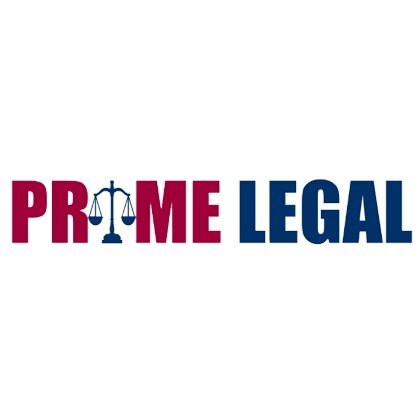Best Conveyancing Lawyers in Nepal
Share your needs with us, get contacted by law firms.
Free. Takes 2 min.
Free Guide to Hiring a Real Estate Lawyer
Or refine your search by selecting a city:
List of the best lawyers in Nepal
About Conveyancing Law in Nepal
Conveyancing in Nepal refers to the legal process of transferring ownership of real estate property from one person or entity to another. This process involves preparing legal documents, verifying property titles, ensuring the absence of encumbrances, and registering the property with relevant authorities. Conveyancing ensures that the rights of both buyers and sellers are protected and that property transactions comply with Nepali laws and regulations.
Why You May Need a Lawyer
Although some individuals attempt property transfers on their own, several situations require legal expertise. Engaging a lawyer for conveyancing is particularly important in the following circumstances:
- Purchasing or selling real estate for the first time
- Transferring property through inheritance or gifting
- Dealing with disputes regarding property boundaries or ownership
- Uncovering unclear or disputed property titles
- Requiring assistance with property documentation in languages other than Nepali
- Navigating complex tax or financial implications
- Facilitating commercial property transactions
A qualified lawyer can help ensure proper due diligence, prepare and verify necessary documents, and provide guidance through the registration process, reducing risks of fraud or legal complications.
Local Laws Overview
Conveyancing in Nepal is governed by several local laws and regulations, including the Civil Code 2074, the Land Revenue Act 2034, and relevant government directives. Below are key legal aspects to consider:
- Title Verification: Proper investigation of the title deed (Lal Purja) is critical. This includes checking for encumbrances such as mortgages, court cases, or government acquisitions.
- Document Preparation: Deeds of sale, purchase agreements, and power of attorney documents must adhere to prescribed formats and be notarized or attested as required.
- Registration: Property transactions must be registered at the local Land Revenue Office. Both buyer and seller (or their authorized representatives) must be present for verification.
- Taxation: Transfer taxes, registration fees, and applicable VAT must be paid according to property values and local municipality guidelines.
- Foreign Ownership: There are restrictions on non-Nepali citizens owning property in Nepal, making consultation essential for foreign nationals.
- Dispute Resolution: If disputes arise, parties may approach local courts, the Land Revenue Office, or seek alternative dispute resolution mechanisms.
Frequently Asked Questions
What is the main purpose of conveyancing?
Conveyancing ensures the legal transfer of real estate property from one party to another, verifying ownership, settling existing dues, and registering the new owner.
Do I need a lawyer for property transactions in Nepal?
While not compulsory, having a lawyer is highly advisable to avoid legal pitfalls, incomplete documentation, and potential fraud.
How long does the conveyancing process take?
Typically, straightforward transactions can take a few days to a couple of weeks, but delays may occur if title issues or disputes arise.
What documents are required for property transfer?
Essential documents include the original title deed (Lal Purja), citizenship certificates of parties, tax clearance certificate, property map, and relevant land revenue receipts.
Are there taxes involved in conveyancing?
Yes, both registration fees and property transfer taxes apply. Rates may vary by municipality and property type.
Can foreigners buy property in Nepal?
Generally, foreigners cannot directly own land or real estate in Nepal. There are strict restrictions, and legal advice is recommended for special cases or structured arrangements.
What is the role of the Land Revenue Office?
The Land Revenue Office oversees the registration of property transfers, verifies documentation, and issues the updated land ownership certificate.
What happens if property disputes arise after the transfer?
Disputes can be addressed through local mediation, the Land Revenue Office, or by filing a case in the appropriate Nepali court.
How can I verify the authenticity of property documents?
A lawyer can assist in verifying land records, checking for encumbrances, and confirming that the title is free from disputes or claims.
Is it easier to transfer property among family members?
While procedures are similar, certain concessions in taxes or documentation may apply for transfers among close relatives, subject to compliance with legal requirements.
Additional Resources
For more guidance or official support, consider contacting the following bodies and resources:
- The Department of Land Management and Archive
- Your local Land Revenue Office (Malpot Karyalaya)
- Nepal Bar Association and its local chapters for lawyer referrals
- The Ministry of Land Management, Cooperatives and Poverty Alleviation
- Legal aid clinics and law firms specializing in property law
- Consumer Rights organizations for dispute mediation support
Next Steps
If you need legal assistance with conveyancing in Nepal, take the following steps:
- Gather all property-related documents, including previous title deeds, citizenship certificates, and tax receipts.
- Consult a qualified lawyer well-versed in Nepali land and property laws.
- Request a title search and due diligence review to uncover any existing issues or encumbrances.
- Ensure all documents are accurately prepared, signed, and notarized as required.
- Accompany your lawyer to the local Land Revenue Office for registration and payment of fees.
- Retain copies of all signed and registered documents for your records.
An informed and cautious approach, supported by professional legal advice, is the best way to ensure your property transaction is safe, legal, and successful in Nepal.
Lawzana helps you find the best lawyers and law firms in Nepal through a curated and pre-screened list of qualified legal professionals. Our platform offers rankings and detailed profiles of attorneys and law firms, allowing you to compare based on practice areas, including Conveyancing, experience, and client feedback.
Each profile includes a description of the firm's areas of practice, client reviews, team members and partners, year of establishment, spoken languages, office locations, contact information, social media presence, and any published articles or resources. Most firms on our platform speak English and are experienced in both local and international legal matters.
Get a quote from top-rated law firms in Nepal — quickly, securely, and without unnecessary hassle.
Disclaimer:
The information provided on this page is for general informational purposes only and does not constitute legal advice. While we strive to ensure the accuracy and relevance of the content, legal information may change over time, and interpretations of the law can vary. You should always consult with a qualified legal professional for advice specific to your situation.
We disclaim all liability for actions taken or not taken based on the content of this page. If you believe any information is incorrect or outdated, please contact us, and we will review and update it where appropriate.
Browse conveyancing law firms by city in Nepal
Refine your search by selecting a city.

















